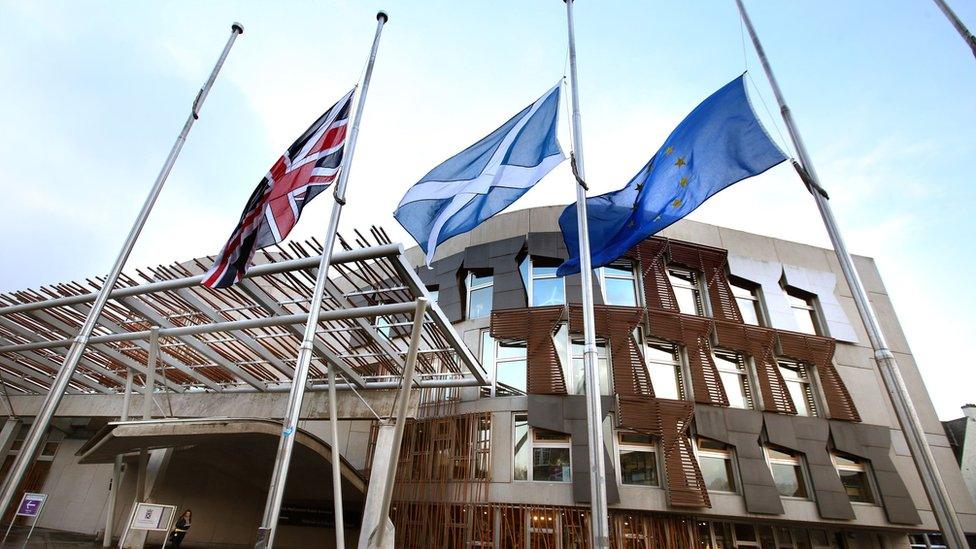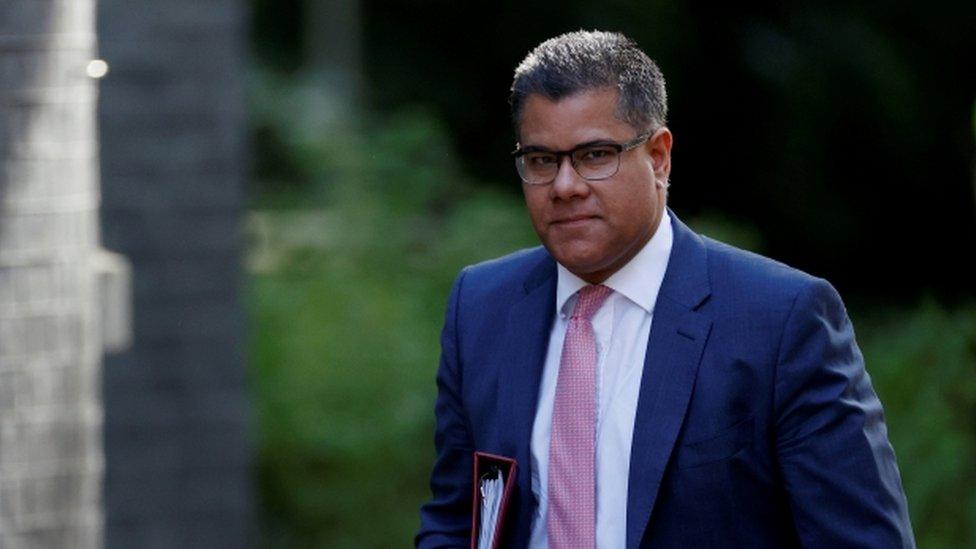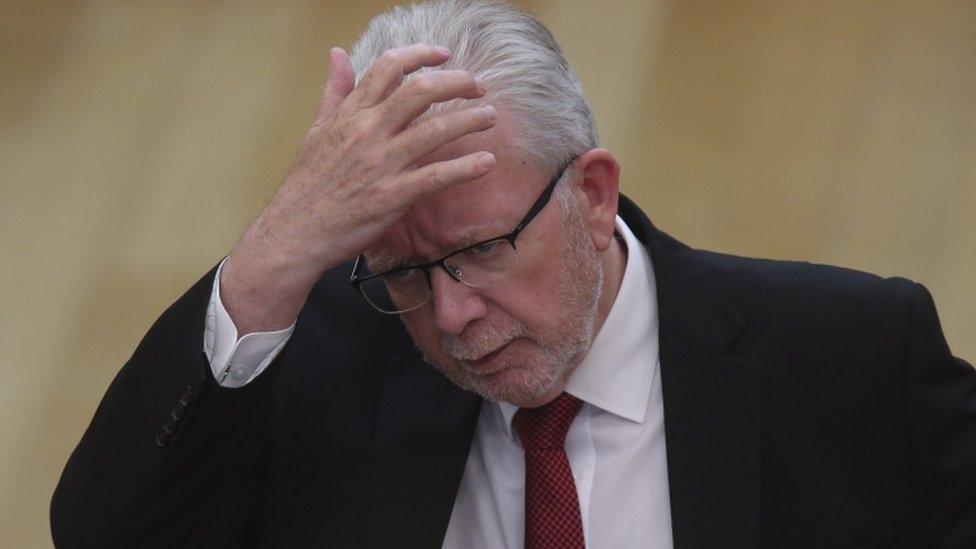Fresh row over devolved powers after Brexit
- Published

The Scottish and UK governments have clashed in a fresh row about how powers will be shared out post-Brexit.
Plans for how a UK-wide "internal market" will operate after the country leaves the EU have been published.
UK Business Secretary Alok Sharma told BBC Scotland that the move would see "the biggest transfer of powers in the history of devolution".
But Scottish Constitution Secretary Mike Russell said this was a "lie" and that powers would really be taken away.
The proposals were set out in a white paper, with legislation to follow later in the year.
When the UK cuts its final ties with the EU at the end of the Brexit transition period in the New Year, a raft of powers currently exercised from Brussels will return to more local control.
The Scottish and UK governments have been locked in a lengthy dispute about who will ultimately be responsible for issues such as air quality, animal welfare and food quality.
Many powers are set to be directly controlled by the Scottish, Welsh and Northern Irish administrations, in fields including food labelling, energy efficiency and support for farmers.
However, the UK government has said the devolved administrations will still have to accept goods and services from other parts of the UK - even if they have set different standards locally - to ensure a level playing field in the "internal market".
Scottish ministers believe this means standards across the country could be dragged down if the UK government makes concessions in new trade deals.

Alok Sharma said it was important to give "certainty" to businesses
Mr Sharma told the BBC's Good Morning Scotland programme that the move was a "power surge" for the devolved administrations.
He said: "We've had a seamless UK internal market for hundreds of years and that's been very good in terms of free flow of goods and services within all part of the UK. Our plans are for this to continue after the transition period.
"Ultimately this is about certainty for businesses, its about protecting jobs and livelihoods and supporting investment decisions, it's going to be good for consumers as well and ultimately this is about underpinning the recovery.
"All devolved policy areas will stay devolved, and there will be the biggest transfer of powers in the history of devolution at the end of the transition period."
Common frameworks
There has been a long-running row over how "common frameworks" of regulations will work across the four nations, with UK ministers saying it is vital for "all UK companies to trade unhindered in every part of the UK".
The government said there could be "serious problems" if Welsh lamb producers were unable to sell their products in Scotland, or if Scottish whisky producers were unable to buy barley from English farms because different rules were in place on either side of the border.
Mr Sharma said: "The devolved nations can of course set their own regulations, but the key thing is that businesses are able to continue to trade.
"We have been working with the devolved administrations in terms of our common frameworks, which is about sitting down in a collaborative way and coming up with regulations that apply to the whole of the UK."

Mike Russell said the UK government was lying about the new powers
Mr Russell said Mr Sharma's claims about new powers for Holyrood were "not true", saying MSPs had already legislated in a series of areas highlighted.
He said: "The list of powers that's been issued by the UK government is simply dishonest. It's one of the most shocking pieces of dishonesty I've seen from a government.
"It's a mishmash of things the Scottish Parliament already has, things they've already decided we won't have because of the frameworks, and things that could be automatically overridden by a decision by the UK government to take a power away.
"There aren't new powers for the Scottish Parliament, that is a lie. Nobody should be fooled by this - what is actually happening here is taking away very significant powers that will have an effect on our daily lives."
'High standards'
Mr Russell said the Scottish government had been happy to abide by the "high and sensible standards" set at an EU level, but said the UK government could "lower those standards dramatically" to win trade deals.
"The US will not give trade deals unless agriculture is involved, and US agriculture will drive down standards. That is what we are facing."
Mr Sharma insisted that the UK government "has always set very high standards", adding that "in some areas our standards have been higher than those of the EU".
He added: "What we are not going to be doing in any of these agreements is compromising the very high environmental, animal welfare and food safety standards that we have."


There is a hint of déjà-vu about this continuation of a row that has been rumbling along pretty much ever since the UK voted to leave the EU more than four years ago.
Is this a "power grab" or a "power surge"? As ever in politics, the answer is a bit more complicated than either side is letting on.
The operation of cross-border regulatory frameworks and state aid rules might not be hot talking points down the socially-distanced pub, so perhaps it is understandable that politicians are reaching for sweeping rhetoric rather than detail - particularly given their starkly opposed positions on the underlying issue of Brexit.
But ultimately these rules could have an important impact on everyday life. There are real concerns about whether the UK's new trade deals will see our markets opened up to sub-standard products from abroad - but also about the security of cross-border trade between the four nations, which is hugely important to many businesses.
A lot of the nuance in this complex debate risks being lost amid the political rammy.